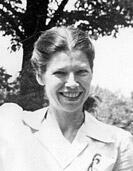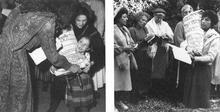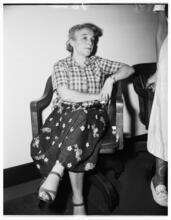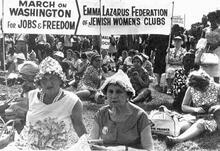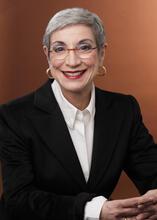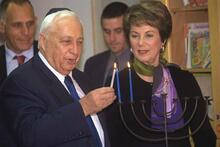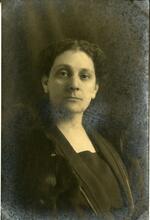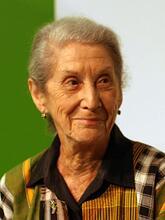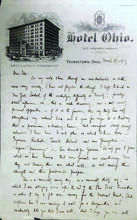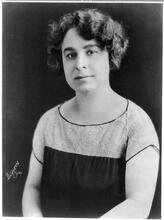Eugenia Goodkind Meyer
Eugenia Goodkind Meyer spent a lifetime working for civil rights on a local level as founder of an urban welfare league offering services to African Americans in White Plains, New York. Meyer graduated from the Ethical Culture School in 1894 and married Max Meyer in 1902. The couple moved to White Plains, where they founded the Welfare League for Colored People in 1918 (later the Urban League of Westchester). She created a foster care program for the Westchester County Children’s Association and served as chair and director of the association for twenty-five years. In 1950 she and her husband received the Human Relations Award for Outstanding Citizenship from the White Plains Human Relations Center for their lifetime of advocacy.
Article
A prominent civic leader in Westchester County, New York, Eugenia Goodkind Meyer was a longtime advocate of civil rights. Born in New York City on June 1, 1878, she married Max Meyer at New York’s Ethical Culture Society in 1902. The Meyers moved to White Plains, New York, in 1914 and became active in its civic life, helping found the Welfare League for Colored People in 1918 (renamed the Urban League of Westchester in 1935). Max Meyer chaired the organization and Eugenia Meyer served for many years as its corresponding secretary. In May 1965, she was honored for her contributions when she was made honorary director for life.
Meyer’s commitment to civil rights was also evidenced by her membership in New York’s Community Church, a leftist interracial congregation of Unitarians whose congregants included a number of Jews and whose minister, John Haynes Holmes, had long been in the forefront of social activism and struggles for racial justice. She also served as chair and director of the White Plains branch of the Westchester County Children’s Association for twenty-five years, where she helped establish its foster care program. Her husband, a clothing manufacturer and labor mediator, served on several industrial boards and served as president of the Fashion Institute of Technology and as a governor of White Plains Hospital.
On May 16, 1950, Eugenia and Max Meyer received the Human Relations Award for Outstanding Citizenship from the White Plains Human Relations Center. The center had been established in 1948 by the State Commission Against Discrimination and the New York State Department of Education.
Max Meyer died of a heart attack at age seventy-six, on January 31, 1953. Eugenia Meyer moved to Katonah, New York, in 1955 and to Hightstown, New Jersey, in 1966. She died of a heart attack in Princeton, New Jersey, on June 2, 1967, a day after her eighty-ninth birthday. She was survived by one sister, a son, and three daughters. As William Strawbridge, president of the Westchester Urban League, commented on her death, “The Urban League has lost one of its most diligent and dedicated workers.... She was greatly concerned with relieving injustice and inequity.”
Obituaries. NYTimes, June 3, 1967, 31:4, and White Plains Reporter-Dispatch, June 3, 1967.

